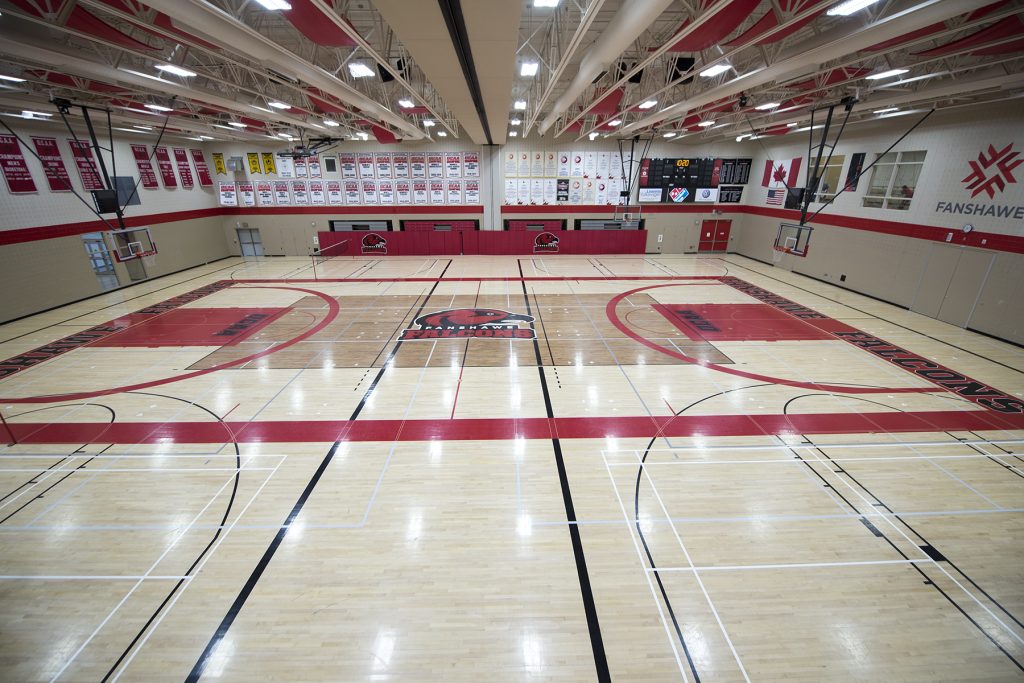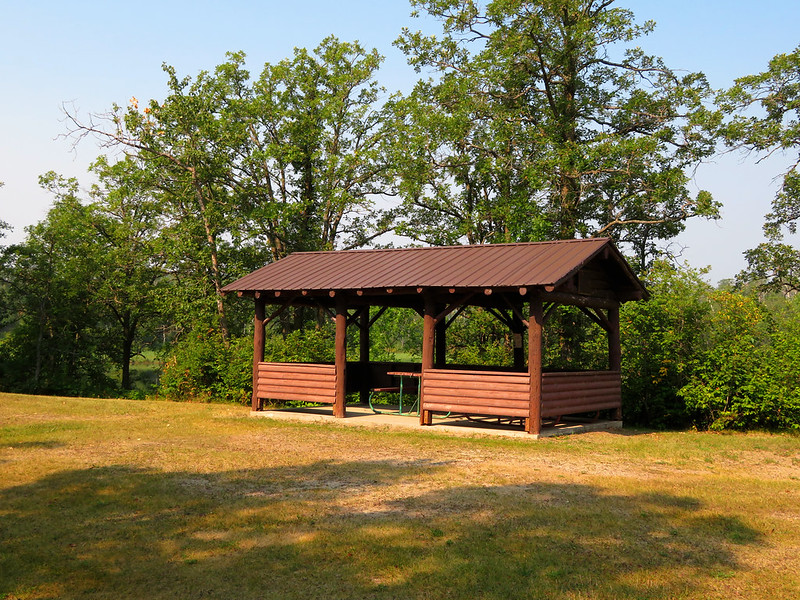5.3 Physical Environments: Facilities and Venues
An important aspect of program design is deciding where a program or event will be offered. Every recreation-based activity is held somewhere…perhaps in a facility like a gymnasium, a hotel ballroom, a library, a school, a boardroom, a fitness studio, or a Provincial Park Visitor Centre, or at a venue like an outdoor soccer pitch, a beach pavilion, a music hall, or a boathouse. Whatever space you choose needs to be safe, welcoming, accessible, and appropriate for the recreation activity in question.
Facilities
Facility: A facility is a fixed, often permanent structure or building used for recreation and leisure activities, events, and sports—a place for a particular purpose. The word “facility” usually refers to any place with four walls and a roof – a building. Examples: Gyms, pools, yoga or fitness studios, conference centres, sports arenas, community centres.

Venues
Venue: A general term that refers to a designated place, indoor or outdoor, where something happens, especially an organized event such as a concert, conference, celebration, or sports event. Examples: A picnic shelter, an amphitheatre, a classroom, an auditorium.

Spaces
“Space” is a term that is widely used by recreation program-planners to describe a continuous area in which something happens. The word “space” in this context can refer to a facility or a venue.
Examples:
- “It wasn’t the best place to hold the event – the chairs and tables took up too much of the space, so the children had no room to run around”.
- “What space have you reserved for the Tuesday book club meetings?”
- “This space would be perfect for next week’s Euchre tournament!”
- “The space was gorgeously decorated – the program-planning committee did an amazing job!”
Third-Party Contracts and Permits
A Third-Party Contract is an agreement that involves a person who isn’t a primary part of an existing contract, but is involved with the transaction. For example, when the Original Kids Theatre Company administrative staff rent space at Huron University College each summer to run their 10-week “Camp-OK” children’s theatre camp program, they enter into a legal agreement -a third-party contract – with Huron to allow them to use the space.
A Permit is an official document that gives someone authorization and express permission to do something. If a Program-Planner chooses to use a facility, venue or space to host a program or event outside of their place of employment, they may have to obtain a permit – a legally binding contract – to use that space. Examples: Obtaining a permit from the municipality to use public parkland for a 2-day music festival, obtaining a permit to close-off certain roads to accommodate a parade, march or road-race. Other types of permits to consider when program-planning include building permits, work permits, and study permits. Like permits, licenses grant permission to carry out a specific activity. Examples: Obtaining an F-Class Driver’s license to drive a 15-passenger van to transport your participants, obtaining fishing licenses for wilderness camp staff so they can fish while on a canoe trip, or obtaining a Special Occassion Permit (SOP) from the Alcohol and Gaming Commission of Ontario (AGCO) permitting the sale and consumption of alcohol at your special event.
Considerations
There is much to consider when selecting a suitable facility or venue for your program. Programmers determine the suitability of a given space using a number of criteria, including the physical size of the room/space, capacity, atmosphere, cost, and amenities. Consider…
- The Personal Schedules of the Attendees – Example: Scheduling a program for 10-year olds on Tuesdays at 1:00 PM at your community centre won’t work as the children will be in school.
- Avoiding Offering Conflicting Programs at the Same Time or Proximity – Example: Placing a Hip-Hop Dance class in the room next to Yoga-for-Relaxation workshop.
- Is the Location Ideal? Example: If the Tai Chi class is currently scheduled to be held in the gym – a very large, echo-y space, could it be moved instead to a more suitable quiet multipurpose room?
- Is the Venue Suitable for the Program, Given the Weather or Season? Example: Indoor Soccer is not ideal to hold indoors in spring. In the warmer weather, most people want to start getting outside more and would likely prefer an outdoor soccer pitch.
- Amenities – Depending on the program being offered, is a kitchen available? Are washrooms nearby? Are there break-out rooms? Elevators? Is there reliable Wifi? Is there a sprung floor, a stage, or suitable lighting for what you have in mind?
- Availability of the Venue or Facility – Whether it’s a double gymnasium, a ballroom, an outdoor amphitheatre or a museum lobby – is the space available when you require it?
- Equipment and Gear – Is the equipment and gear you need for your program or event readily available at your venue, or will you have to bring it in?
- Risk Management (See STEP 8 – Risk Management) – Managing the venue’s risks is another consideration. Is the area you plan to offer your program safe and suitable for your participants?
The types of facilities, areas, and spaces used to deliver recreation programs are almost infinite and only as limited as the programmer’s imagination! Gardening can take place in a private room in a long term care home, a night of board games can be enjoyed outdoors by candlelight, a drum-making workshop can take place in a corporate boardroom. The sky’s the limit!
Helpful Tip
The Ontario Recreation Facilities Association (ORFA) offers guidelines and best practices for the operation of ice arenas, aquatic facilities and other recreational facilities in Ontario. Created in 1947, ORFA is a provincially-recognized, not-for-profit, volunteer-driven recreation organization. Today, the ORFA has over 7,500 card-bearing members who operate and manage recreation facilities in municipalities, educational institutions, government agencies, First Nations communities and in the private recreation sector. Members also include businesses and industries that support the recreation sector. As a member-based organization, the ORFA is dedicated to providing leadership in training and development, as well as in products and services for the benefit of the recreation facility profession (ORFA, 2024).

